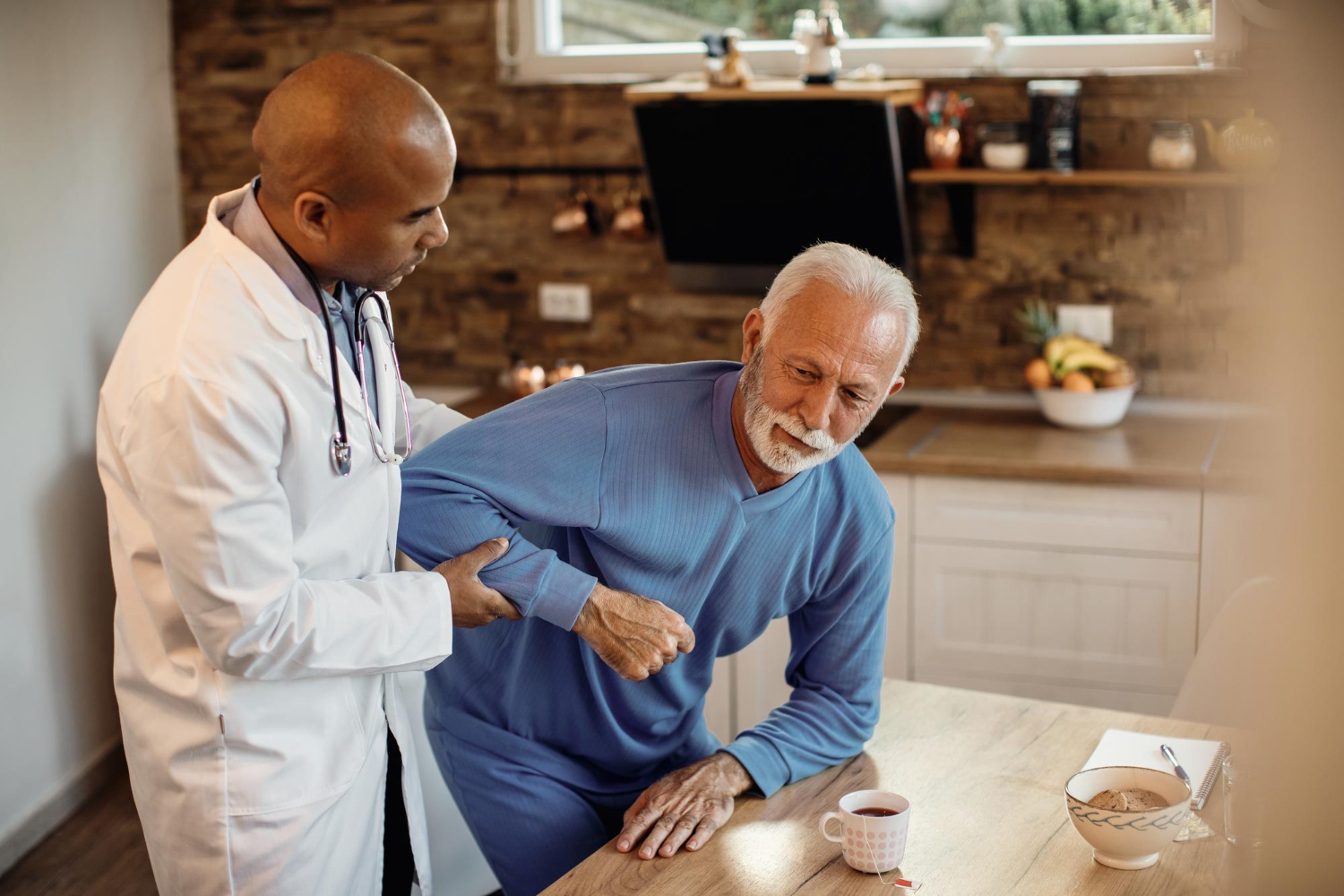
In this article
Kidney pain can stem from various causes, such as kidney stones, urinary tract infections (UTIs), injuries, infections, polycystic kidney disease, and cancer.
What is Kidney Pain?
Kidney pain, also known as renal pain, refers to discomfort near your kidneys. These bean-shaped organs are located just below your ribcage on each side of your spine. While kidney pain doesn’t always indicate a problem with the kidneys themselves, it often points to an issue within the urinary system.
What Does It Feel Like When Your Kidneys Hurt?
Kidney pain is often confused with back pain, but there are distinct differences.
Kidney Pain vs. Back Pain
Back pain typically affects the middle of your back, over the spine, and is most common in the lower back. Spine-related issues can sometimes cause pain to radiate down your legs.
In contrast, kidney pain is usually located higher on your back and feels deeper. It often occurs under your ribs, to the right or left of your spine, and may radiate to other areas like your abdomen or groin. While hip pain is often mistaken for kidney pain, hip pain is generally lower in the back compared to kidney pain.
Possible Causes of Kidney Pain

Your kidneys are connected to your bladder and ureters (tubes that carry urine from your kidneys to your bladder). Issues with any of these areas can lead to pain and discomfort. Common causes of kidney pain include:
- Kidney Stones: These form from the buildup of minerals or compounds in your body. Stones can be as small as a grain of sand or larger than a pearl. Small stones may pass through your urinary tract on their own, but larger stones can get stuck and block urine flow, causing intense pain.
- Urinary Retention: This condition prevents you from completely emptying your bladder, which can occur suddenly or develop gradually.
- Vesicoureteral Reflux (VUR): This condition causes urine to flow backward from the bladder to the ureters or kidneys, most commonly affecting babies and young children.
- Ureteropelvic Junction Obstruction: A blockage where the ureter attaches to the kidney can cause flank pain that may radiate to the belly or groin.
- Ureteral Stricture: Narrowing of the ureter, the tube that carries urine from the kidneys to the bladder, can occur on one or both sides.
- Kidney Infection (Pyelonephritis): Bacterial infection of the kidneys can cause symptoms like fever, chills, back or side pain, and nausea or vomiting.
- Polycystic Kidney Disease: This inherited condition involves fluid-filled sacs (cysts) in the kidneys, which can enlarge and cause pain, impairing kidney function.
- Injury or Trauma: Physical damage from contact sports, accidents, or other blunt force trauma can result in blood in the urine or around the kidneys and urine leakage from the kidneys.
- Kidney (Renal) Cancer: Renal cell carcinoma, the most common type of kidney cancer, usually affects people in their 60s or 70s. Symptoms include blood in the urine, flank pain, or a lump on the side.
Common Symptoms of Kidney Pain
Kidney pain can present various symptoms, including:
- A constant, dull ache in your back.
- Pain in your sides, under your rib cage, or in your abdomen.
- Severe or sharp pain that comes in waves.
- Pain that spreads to your groin area.
- Kidney pain is often accompanied by nausea or vomiting, especially if caused by kidney stones.
Care and Treatment
How Is Kidney Pain Treated?
Treatment for kidney pain depends on the underlying cause. For instance, kidney infections are treated with antibiotics, while kidney stones may require treatments to remove them.
Diagnostic Tests for Kidney Pain
To determine the cause of kidney pain, healthcare providers may use several diagnostic tools:
- Urinalysis: This test checks for blood, white blood cells (indicating infection), proteins, and molecules linked to kidney disorders.
- Imaging Tests: Ultrasound or CT (computed tomography) scans provide images of the kidneys and urinary tract, revealing stones and assessing urine flow.
What to Do If Your Kidneys Hurt
If kidney pain persists, schedule an appointment with your healthcare provider or visit the emergency room if you experience severe symptoms like uncontrolled pain, severe nausea or vomiting, fever or chills, or inability to urinate. In the meantime, you can:
- Stay Hydrated: Drinking plenty of water helps flush bacteria from your urinary tract. Avoid caffeinated drinks and alcohol.
- Use Heat: Applying a heating pad to your back, abdomen, or side can help reduce pain.
- Take Pain Relievers: Over-the-counter pain relievers like acetaminophen or ibuprofen can ease fever and discomfort, unless you have known liver or kidney damage.
Drinks to Avoid for Kidney Health
Water is the best choice for kidney health. Drinks high in sugar can lead to diabetes, and those with excessive salt or caffeine can cause dehydration, potentially damaging the kidneys over time.
When to Call Your Doctor
Contact your healthcare provider if you have persistent kidney area pain or back pain accompanied by:
- Fever or chills.
- Severe nausea or vomiting preventing you from eating or drinking.
- Oddly colored urine.
- Painful urination.
- Blood in the urine.
- Frequent, urgent need to urinate.
- Visible kidney stones in urine.
- Persistent feelings of illness or lethargy.
A Note from Cleveland Clinic
Kidney pain can range from mild to severe. While sometimes harmless, it usually indicates a problem within the urinary system. If you experience back pain along with fever, vomiting, painful urination, or other concerning symptoms, seek medical attention promptly. Your healthcare provider can diagnose the cause of your kidney pain and recommend appropriate treatment
A Quick Review
Kidney pain is a discomfort near your kidneys, often mistaken for back pain but located higher and deeper under the ribs. Causes include kidney stones, infections, and trauma. Symptoms range from dull aches to severe pain and nausea. Diagnosis typically involves urinalysis and imaging tests. Stay hydrated, use heat, and take pain relievers to manage symptoms. Seek medical attention for persistent or severe pain.












